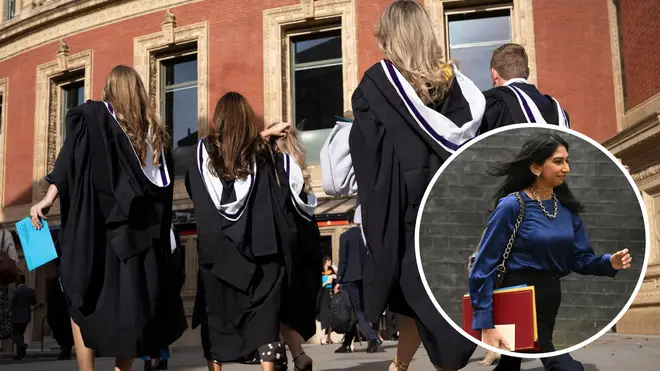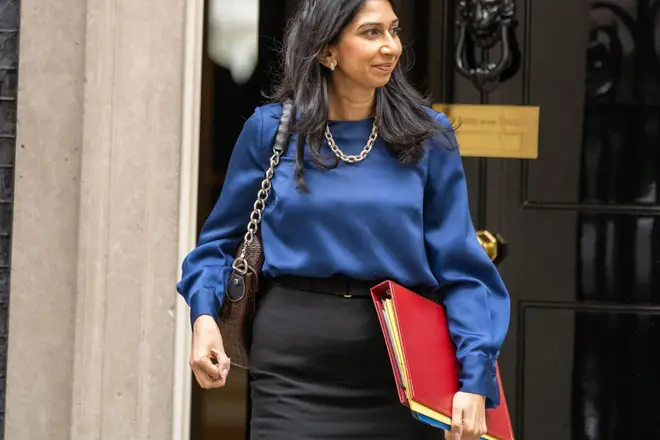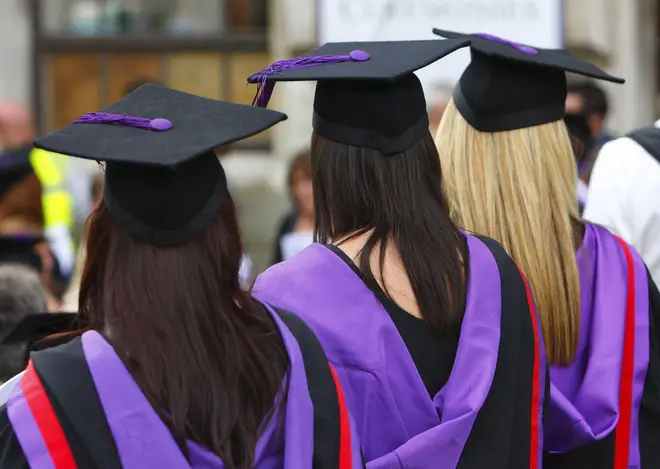
Natasha Devon 6pm - 9pm
23 May 2023, 16:10 | Updated: 25 May 2023, 09:48

International students are to be prevented from bringing family members to the UK while they study here as part of the government's major tightening on migration measures.
Foreign students who are not on postgraduate research programmes will be banned from bringing dependents to the UK with them while they study starting January 2024.
Figures are scheduled to be released from the Office for National Statistics on Thursday, which are expected to reveal that net migration is running at record levels for the year ending December 2022.
Downing Street has labelled the new move as the “single biggest tightening measure a government has ever done”.
Rishi Sunak told his Cabinet that approximately 136,000 visas has been granted to dependents in 2022, an increase of 128,000 from 2019, when only 16,000 were granted.
Home Secretary Suella Braverman said: “This package strikes the right balance between acting decisively on tackling net migration and protecting the economic benefits that students can bring to the UK.
"Now is the time for us to make these changes to ensure an impact on net migration as soon as possible. We expect this package to have a tangible impact on net migration.
"Taken together with the easing of temporary factors, we expect net migration to fall to pre-pandemic levels in the medium term."
Listen and subscribe to Unprecedented: Inside Downing Street on Global Player

Read More: Migration added 606,000 people to UK’s population in 2022, official figures show
The move will also prevent international students from switching out of the student visa route into work before their studies have been completed to “prevent misuse of the visa system”.
A spokesman for the prime minister said the government also plans to review the maintenance requirements for students and dependents to clamp down on “unscrupulous education agents who may be supporting inappropriate applications to sell immigration, not education”.
The government acknowledged the importance of international students and their place at British universities, but said “it should not be at the expense of our commitment to the public to lower overall migration and ensure that migration to the UK is highly skilled and therefore provides the most benefit.”
This move could have major consequences for British universities, as many rely on their intake of fees from foreign students, which are often at an elevated rate.
Also detailed in the new government package is a need for “better communicating immigration rules to the higher education sector and to international students” and “improved and more targeted enforcement activity”.

Ms Braverman has reportedly faced some pushback from some Cabinet colleagues however, as Chancellor Jeremy Hunt and Education Secretary Gillian Keegan have allegedly been appealing to provide more visas to students and workers in certain areas.
Nick Hillman, director of the Higher Education Policy Institute (Hepi) Think Tank, said of the announcement: “This is not a wise move because every part of the UK benefits from the presence of international students and, if they are discouraged from coming to the UK, they won’t stay at home but instead go to our competitors.
“Given that international student fees subsidise the teaching of home students as well as UK research, I hope the Home Secretary will now be lobbying the Chancellor to help universities recoup their losses.”